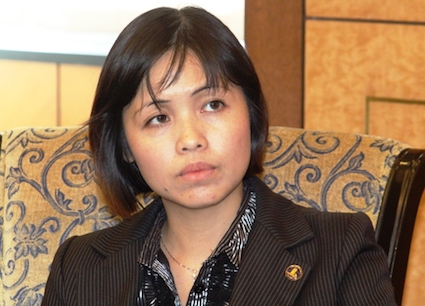Jawi in Chinese schools only if 51% of parents, PTAs agree, says Teo

(FMT) – Jawi lessons for the Bahasa Melayu syllabus in vernacular schools can only be introduced with the approval of the majority of parents or the parent-teacher association (PTA), said Deputy Education Minister Teo Nie Ching.
She said without 51% approval of either parents or the PTA, Jawi cannot be included as part of the syllabus.
Teo said schools will distribute forms seeking parents’ views as stipulated in the guidelines for the introduction of Jawi to Year 4 students.
“If you study the guidelines, it clearly states that PTA is to distribute the approval forms to parents of Year 4 students and analyse the returned forms, but the PTA still has the power to make a decision,” she was quoted as saying by Sin Chew Daily at a dialogue yesterday.
She said the guidelines further stated that the school board would decide in the absence of the PTA.
Sin Chew reported that Chinese school principals had wanted to distribute the approval forms to parents on the first day of school but postponed this to next week.
Teo said people should put aside their prejudice and fear on the teaching of Jawi, and rejected allegations of hidden agenda by the government.
She questioned how Chinese vernacular schools would lose their identity if Jawi is taught in the Bahasa Melayu subject.
The proposed Jawi lessons would span three pages, and was limited to writing the script in the Malaysian coat of arms, ringgit and stamps for Year 4 students.
Year 5 and 6 students will learn the meaning of Jawi words for everyday items.
Teo said she was not against the teaching of Jawi because its syllabus as part of the Bahasa Melayu subject was the same for other language subjects.
“So we feel that in learning Bahasa Melayu, we can also introduce a little bit of knowledge on the history of Bahasa Melayu.
“We hope the people can view educational matters from an educational perspective.”
The government’s plan to introduce Jawi to Year 4 students this year has been met with strong resistance from Chinese educationist groups, particularly Dong Jiao Zong.

